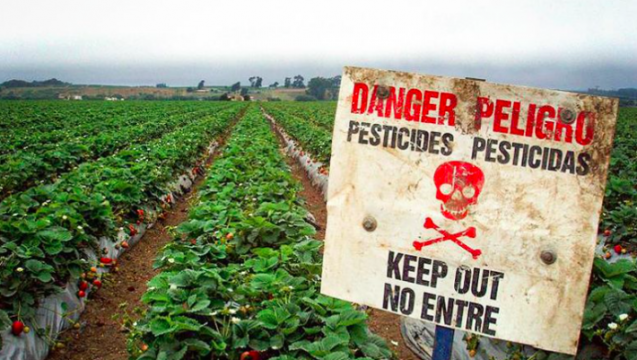03
Feb
Millions of People Poisoned by Pesticides Each Year, Underscoring Need for Organic Transition

(Beyond Pesticides, February 3, 2021) Hundreds of millions of people are being injured by pesticides every year, according to the first global estimate of unintentional human pesticide poisoning released in three decades. The systematic review, published in BMC Public Health highlights the grave result of modern civilization’s reliance on toxic chemicals to manage weeds and other pests. While international agencies like the Food and Agriculture Organization (FAO) endorse the phase out of highly hazardous pesticides, advocates say that goal should be the starting point in a broader paradigm shift to global organic production.
To determine the extent of unintentional poisonings, researchers reviewed scientific literature published between 2006 and 2018, including 157 publications and World Health Organization databases. The search ultimately covered 141 countries. Of these, 740,000 cases of unintentional poisoning were found, with roughly 7,500 resulting in death. Extrapolating that data, scientists estimate 385 million unintentional poisonings worldwide, including 11,000 fatalities. That number encompasses an astounding 44% of the entire global farming population of 860 million.
The authors note the importance of understanding the impact of pesticide poisonings that injure, but do not kill. “There is a need to recognize the high burden of non-fatal UAPP, particularly on farmers and farmworkers, and that the current focus solely on fatalities hampers international efforts in risk assessment and prevention of poisoning,” the study reads.
This is a critical aspect of pesticide incidents. If an accidental pesticide poisoning does not kill outright, it can result a range of chronic or long-term health issues. These health burdens further stress agricultural workers and their families. The costs of caretaking, transportation, health care, coupled with loss of income from pesticide injury can be overwhelming.
Individuals can also experience problems unique to their poisoning, with few available resources for treatment. Although there is growing recognition in the medical community of multiple chemical sensitivity or toxicant induced loss of tolerance, many individuals remain housebound due to risks from everyday exposure to chemicals in our environment. Beyond Pesticides receives dozens of calls each year from individuals experiencing the chronic effects of pesticide poisoning.
While eliminating the most acutely toxic pesticides on the market would make a major impact, there is a larger problem with our approach to growing food. Industrial fertilizers and pesticides enabled a rapid increase in production through the 20th century, but the long-term benefit is under serious question. Widespread poisoning of people and the planet, and the pollution of soil, air, water and food have brought considerable suffering. Industrial agriculture has been linked to the decline of pollinators and insects in general, rise in antibiotic resistance, violations of human rights, and a range of chronic disease, among a number of other adverse impacts.
Pesticide dependency is a path the world can choose not to follow. But a transition to safer practices is not simple. It requires education, buy-in, and support from government and consumers. Ultimately, organic agriculture can and must feed the world. Alternative practices that work with, rather than against nature, such as biological pest management, show historical benefits that rival the green revolution. Organic agriculture addresses the failings of chemical-intensive farming on health and the environment while maintaining good yields at roughly the same cost.
Most importantly, farmers and farmworkers who grow organic food are not exposed to highly hazardous pesticides, as pesticide products compatible with organic production (which are only used as a last resort) must undergo additional, independent review for their impacts on human health.
While unintentional pesticide poisoning is much more frequent in an agricultural setting, it can happen anywhere at any time – from an apartment building contractor, HOA landscaper, neighbor, or even when simply walking one’s dog around the block. If you’ve been poisoned by pesticides, follow the steps on Beyond Pesticides What to Do in a Pesticide Emergency webpage. After you’ve gone through the process, consider submitting a Pesticide Incident Report so that we have your story on file for regulators. Reach out to [email protected] for assistance.
Read more about diseases linked to pesticide exposure through the Pesticide-Induced Diseases Database, and for more information about why organic is the right choice for our farming future, see Beyond Pesticides organic program page.
All unattributed positions and opinions in this piece are those of Beyond Pesticides.
Source: BMC Public Health










